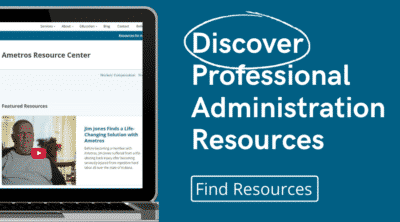Medicare Addresses Opioids in Professional Administration
In version 3.0 of the Workers’ Compensation Medicare Set Aside (WCMSA) Reference Guide, the Centers for Medicare & Medicaid Services (CMS) announced, for the first time, a specific use case where it highly recommended professional administration: “CMS highly recommends professional administration where an individual is taking controlled substances that CMS determines are ‘frequently abused drugs’ according to CMS’ Part D Drug Utilization Review (DUR) policy.” Sec. 17.1.
CMS has identified opioids and benzodiazepines as frequently abused drugs. These medications are common in Medicare Set Asides (MSAs) and it is critical that parties to a settlement take CMS’s guidance into consideration when deciding how the MSA will be administered. With these guidelines, CMS is placing a greater emphasis on an individual’s safety.
Moreover, “CMS expects that WCMSA funds be competently administered in accordance with all Medicare coverage guidelines, including but not limited to CMS’ Part D Drug Utilization Review (DUR) policy. All professional administration programs should institute Drug Management Programs (DMPs) for claimants at risk for abuse or misuse of frequently abused drugs.” Sec. 17.3.
The changes show CMS’s recognition of steps that need to be taken after settlement to ensure the safety of injured individuals and that professional administration is the way to accomplish this. These guidelines also highlight the health risks to the individual who may go against CMS’s recommendation and opt for self-administration. CMS is emphasizing with these new guidelines that individuals pursuing treatment with an MSA should benefit from the same levels of protection that a standard Medicare Part D recipient would receive. It’s important to note that none of these Part D safeguards prevent an individual from receiving the proper care they need, but they do add needed guardrails to ensure that they’re on a safe path.
Electronic Attestation Reporting Functionality Added
In October of 2019, CMS updated its Workers’ Compensation Medicare Set-Aside Portal (WCMSAP) User Guide to allow for electronic submission of attestation information. Attestation reporting provides Medicare with critical information evidencing that the funds were properly expended on injury-related treatment otherwise covered by Medicare. It includes information such as:
- Total spent for medical services
- Total spent for prescription drugs
- Grand total of expenditures
- Total of interest income the account earned
- Balance of WCMSA account at the end of the calendar year
Attestation reporting occurs annually and no later than 30 days after the anniversary of the settlement date. See Self-Administration Toolkit for Workers’ Compensation Medicare Set-Aside Arrangements, Sec. 8. In addition to this, reporting must occur if the MSA temporarily depletes (in the case of an annuitized MSA) or permanently exhausts. Prior to electronic functionality, attestation information was either mailed or faxed to the Benefits Coordination & Recovery Center (BCRC). With electronic attestation:
…the WCMSAP now allows Self and Representative account users, and beneficiary self-administrators logging in via MyMedicare.gov to submit annual attestations online. In addition, there is a new account type of Professional Administrator. These users can submit account transactions via input file submissions and download response files online, allowing them to administer and keep detailed records for a WCMSA account…
There are many benefits to electronic attestation reporting. In sum, it allows for enhanced coordination of benefits, timely and accurate reporting, convenience, and better tracking and forecasting to CMS.
Professional Administration as a Settlement Tool
Consent to Release Language Changes
Beyond ensuring compliance and savings post-settlement, professional administration can also be utilized to overcome pre-settlement obstacles to claims resolution. CMS made changes to the Consent to Release (CTR) form, which is a required authorization form when submitting a WCMSA to CMS for review. “As of April 1, 2020, all consent-to-release notes must include language indicating that the beneficiary reviewed the submission package and understands the WCMSA intent, submission process, and associated administration. This section of the consent form must include at least the beneficiary’s initials to indicate their validation.”
Since there is inherent exposure in an individual attesting to understating “the associated administration” in the event they misspend or mismanage their MSA fund, professional administration can be implemented as a real solution to ensuring proper compliance with MSA funds. Individuals may be concerned attesting to understanding the complexities of MSA administration. Claimant’s attorneys may be fearful their clients do not clearly understand the requirements. Having professional administration alleviates these concerns and risks by taking the burden away from the individual.
Hold Harmless Language
In many settlements, insurance carriers / self-insureds include language requiring an individual to hold harmless and indemnify them in the event the individual mismanages or misspends MSA funds. However, there are certain jurisdictions, such as New York, which do not allow for this. Moreover, regardless of the jurisdiction, some judges will prohibit this type of language.
Professional administration ensures proper handling of the MSA and eliminates the potential that the claimant may mismanage the funds. Professional administration:
- Removes the burden and risk of the claimant mishandling
- Ensures compliance with respect to all CMS guidelines and management of the funds, including reporting and attestation to Medicare
- Maximizes the life of the funds through potential savings and discounts
Professional administration is a more tangible, immediate solution (in addition to or in lieu of) hold-harmless and indemnification language.
Potential MSA Regulatory Changes
There is an current notice of a possible proposed rule which would amend existing Medicare Set Aside regulations. In particular, the abstract indicates that:
This proposed rule would clarify existing Medicare Secondary Payer (MSP) obligations associated with future medical items services related to liability insurance (including self-insurance), no fault insurance, and worker’s compensation settlements, judgments, awards, or other payments. Specifically, this rule would clarify that an individual or Medicare beneficiary must satisfy Medicare’s interest with respect to future medical items and services related to such settlements, judgments, awards, or other payments. This proposed rule would also remove obsolete regulations.
Given that the onus may be placed upon an individual beneficiary, professional administration would provide security for the claimant and ensure post-settlement compliance obligations are taken. Regardless of what any potential regulations require, professional administration will ensure compliance, potential cost-savings, and peace of mind for settling parties.
The Future of Professional Administration
As seen by the compliance and regulatory updates that have been made over the past couple years, it is evident that professional administration is continuing to enhance and emphasize an injured individual’s safety after settlement, ensuring their best interest is always being protected. Best in class professional administrators continue to offer far beyond professional management of future medical funds, including care support services, benefit protection, and Durable Medical Equipment (DME) support after settlement. Moving forward, professional administration should be recommended with settlements to ensure an injured individual has the resources they need to comply with Medicare guidelines and ease into life after settlement.
Read the full article on The National MSPN Network.


